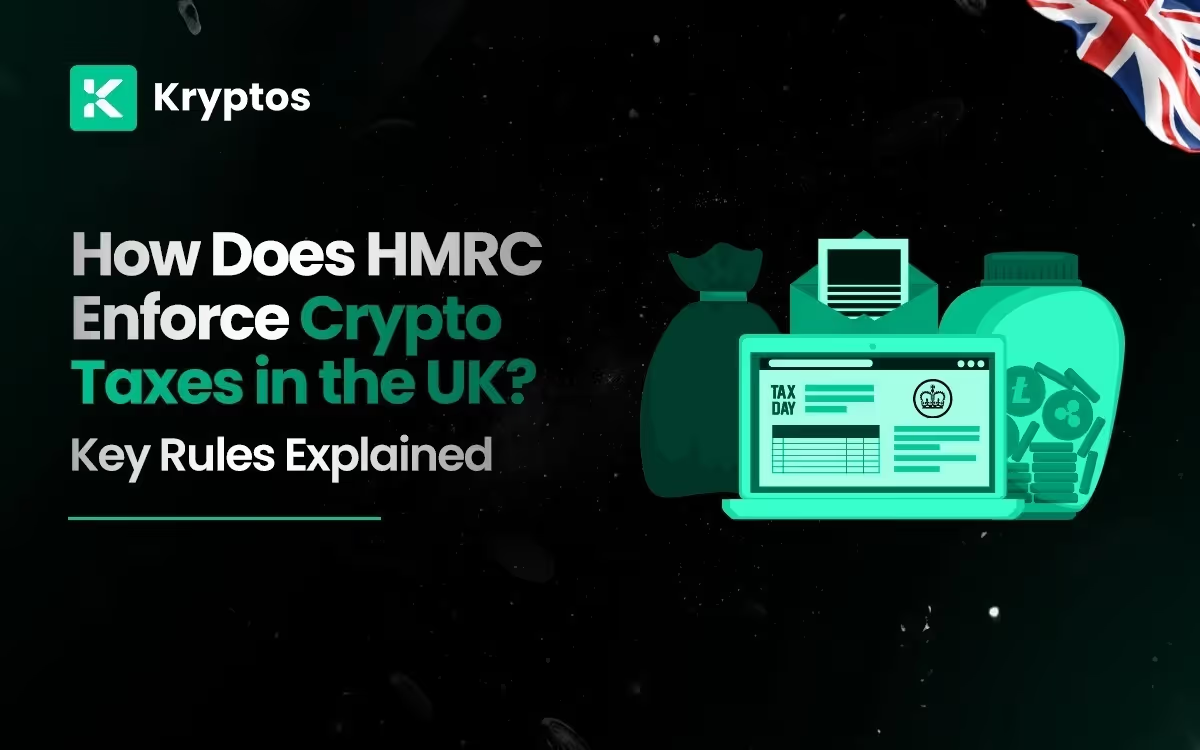.avif)
Calculate Your Crypto
Taxes in Minutes
Introduction
With the UK crypto scene buzzing like a hive of activity, HMRC—Her Majesty’s Revenue and Customs—has rolled out a set of regulations that are as clear as a bell, aimed at ensuring that tax reporting is spot on. But here’s the kicker: grasping these rules isn’t merely about ticking boxes for compliance; it’s a golden ticket for investors to fine-tune their tax burdens.
Now, let’s dive into one of the bedrock principles of HMRC’s crypto tax playbook: Share Pooling. This method, oh, it’s a game-changer—turning the often murky waters of gains and losses into something much more manageable. In this piece, we’ll unravel the intricacies of Share Pooling, alongside the Same-Day Rule and the 30-Day Rule, transforming them into practical nuggets of wisdom for crypto enthusiasts.
So, buckle up—this journey through the tax landscape is bound to be enlightening... or at least, we hope so!
What is Share Pooling?
Share Pooling is an HMRC-mandated method for averaging the acquisition costs of your cryptocurrency holdings. All units of the same crypto are grouped into a single “pool,” simplifying capital gains calculations when you sell or exchange.
Example:
- January: Buy 1 BTC for £30,000
- March: Buy 1 BTC for £35,000
- Share Pool: 2 BTC with a total cost of£65,000
- Average cost per BTC: £32,500
If you sell 1 BTC for £40,000 in May:
- Capital Gain: £40,000 – £32,500 = £7,500
While Share Pooling simplifies reporting, compliance requires following three specific rules.
The 3 Rules for Share Pooling in the UK
1. Pooling Your Crypto Transactions
All holdings of the same cryptocurrency fall under Section 104 Holding, creating a single pool with an average cost for consistency.
Example:
- June: Buy 1 ETH for £1,200
- July: Buy 2 ETH for £2,600
- Share Pool: 3 ETH at a total cost of£3,800
- Average cost per ETH: £1,266.67
If you sell 1 ETH for £1,500:
- Capital Gain: £1,500 – £1,266.67 = £233.33
2. The Same-Day Rule
Crypto bought and sold on the same day is excluded from the pool. These transactions are calculated separately to prevent tax avoidancethrough intraday trading.
Example:
- Buy 0.5 BTC for £15,000 in the morning
- Sell 0.5 BTC for £16,500 the same day
- Capital Gain: £16,500 – £15,000 =£1,500
3. The 30-Day Rule (Bed and Breakfasting Rule)
If you sell and repurchase the same crypto within 30 days, there purchase cost replaces the pooled average. This prevents using quick repurchases to realize tax losses.
Example:
- 1st October: Sell 1 ETH for£1,500
- 15th October: Repurchase 1 ETH for £1,600
- Loss from the sale is disallowed, and the new cost basis is £1,600
Why Share Pooling Matters for Crypto Investors
Ah, the world of crypto—where every transaction feels like a wild ride through a digital carnival. But amidst the chaos, there’s a lifeline: Share Pooling. It’s not just a set of rules from HMRC; it’s a game changer for anyone dabbling in this volatile market. Imagine, if you will, the burden of tracking each and every transaction—what a headache!
...Simplified Reporting—like a breath of fresh air—sweeps in, easing the burden of keeping tabs on every single trade. No more fumbling through endless records. Instead, you can breathe a sigh of relief, knowing your tax filings are accurate, minimizing those pesky errors that could lead to penalties. And for those who trade like it’s as port—Share Pooling becomes your best friend, a strategic ally in navigating the tax landscape.
How Kryptos Simplifies Share Pooling
Now, let’s talk about Kryptos. Picture this: manually applying Share Pooling rules feels like trying to solve a Rubik’s Cube blindfolded—frustrating and time-consuming. But Kryptos? It’s like having a personal assistant who knows the ropes. Automation swoops in, transforming tax reporting from a daunting task into a breeze.
Automatic Share Pooling—think of it as a digital safety net—consolidates your transactions into neat, HMRC-compliant pools. And those rules? The Same-Day and 30-Day Rules? They’re applied without you lifting a finger. In mere minutes, you can generate comprehensive reports, ready to satisfy HMRC’s demands. Plus, with the ability to connect seamlessly to over 5,000 wallets and exchanges, it’s like having a universal remote for your crypto world.
Conclusion: Simplify Your UK Crypto Taxes with Kryptos
So, here’s the deal: understanding HMRC’s rules isn’t just important; it’s essential for staying compliant and tax-efficient. By mastering Share Pooling, you’re not just keeping up—you’re ahead of the curve in the ever-evolving UK crypto market.
Are you ready to ditch the stress of tax season?
Sign up with Kryptos today and let the automation handle the nitty-gritty of your crypto tax calculations. Focus on what truly matters—your investments. Or... just let Kryptos take the wheel.
| Step | Form | Purpose | Action |
|---|---|---|---|
| 1 | 1099-DA | Reports digital asset sales or exchanges | Use to fill out Form 8949. |
| 2 | Form 1099-MISC | Reports miscellaneous crypto income | Use to fill out Schedule 1 or C. |
| 3 | Form 8949 | Details individual transactions | List each transaction here. |
| 4 | Schedule D | Summarizes capital gains/losses | Transfer totals from Form 8949. |
| 5 | Schedule 1 | Reports miscellaneous income | Include miscellaneous income (if not self-employment). |
| 6 | Schedule C | Reports self-employment income | Include self-employment income and expenses. |
| 7 | Form W-2 | Reports wages (if paid in Bitcoin) | Include wages in total income. |
| 8 | Form 1040 | Primary tax return | Summarize all income, deductions, and tax owed. |
| Date | Event/Requirement |
|---|---|
| January 1, 2025 | Brokers begin tracking and reporting digital asset transactions. |
| February 2026 | Brokers issue Form 1099-DA for the 2025 tax year to taxpayers. |
| April 15, 2026 | Deadline for taxpayers to file their 2025 tax returns with IRS data. |
| Timeline Event | Description |
|---|---|
| Before January 1, 2025 | Taxpayers must identify wallets and accounts containing digital assets and document unused basis. |
| January 1, 2025 | Snapshot date for confirming remaining digital assets in wallets and accounts. |
| March 2025 | Brokers begin issuing Form 1099-DA, reflecting a wallet-specific basis. |
| Before Filing 2025 Tax Returns | Taxpayers must finalize their Safe Harbor Allocation to ensure compliance and avoid penalties. |
| Feature | Use Case Scenario | Technical Details |
|---|---|---|
| Automated Monitoring of Transactions | Alice uses staking on Ethereum 2.0 and yield farming on Uniswap. Kryptos automates tracking of her staking rewards and LP tokens across platforms. | Integrates with Ethereum and Uniswap APIs for real-time tracking and monitoring of transactions. |
| Comprehensive Data Collection | Bob switches between liquidity pools and staking protocols. Kryptos aggregates all transactions, including historical data. | Pulls and consolidates data from multiple sources and supports historical data imports. |
| Advanced Tax Categorization | Carol earns from staking Polkadot and yield farming on Aave. Kryptos categorizes her rewards as ordinary income and investment income. | Uses jurisdiction-specific rules to categorize rewards and guarantee compliance with local tax regulations. |
| Dynamic FMV Calculation | Dave redeems LP tokens for Ethereum and stablecoins. Kryptos calculates the fair market value (FMV) at redemption and during sales. | Updates FMV based on market data and accurately calculates capital gains for transactions. |
| Handling Complex DeFi Transactions | Eve engages in multi-step DeFi transactions. Kryptos tracks value changes and tax implications throughout these processes. | Manages multi-step transactions, including swaps and staking, for comprehensive tax reporting. |
| Real-Time Alerts and Updates | Frank receives alerts on contemporary tax regulations affecting DeFi. Kryptos keeps him updated on relevant changes in tax laws. | Observe regulatory updates and provide real-time alerts about changes in tax regulations. |
| Seamless Tax Reporting Integration | Grace files taxes using TurboTax. Kryptos integrates with TurboTax to import staking and yield farming data easily. | Direct integration with tax software like TurboTax for smooth data import and multi-jurisdictional reporting. |
| Investor Type | Impact of Crypto Tax Updates 2025 |
|---|---|
| Retail Investors | Standardized crypto reporting regulations make tax filing easier, but increased IRS visibility raises the risk of audits. |
| Traders & HFT Users | To ensure crypto tax compliance, the IRS is increasing its scrutiny and requiring precise cost-basis calculations across several exchanges. |
| Defi & Staking Participants | The regulations for reporting crypto transactions for staking rewards, lending, and governance tokens are unclear, and there is a lack of standardization for decentralized platforms. |
| NFT Creators & Buyers | Confusion over crypto capital gains tax in 2025, including the taxation of NFT flips, royalties, and transactions across several blockchains. |
| Crypto Payments & Businesses | Merchants who take Bitcoin, USDC, and other digital assets must track crypto capital gains for each transaction, which increases crypto tax compliance requirements. |
| Event | Consequences | Penalties |
|---|---|---|
| Reporting Failure | The tax authorities can mark uncontrolled revenues and further investigate. | Penalty fines, interest on unpaid taxes and potential fraud fees if they are deliberately occurring. |
| Misreporting CGT | Misreporting CGT Error reporting profits or losses can trigger the IRS audit. | 20% fine on under -ported zodiac signs, as well as tax and interest. |
| Using decentralized exchanges (DEXs) or mixers without records | The IRS can track anonymous transactions and demand documentation. | Possible tax evasion fee and significant fine. |
| Disregarding Bitcoin mining tax liabilities | Mining reward is considered taxable income, and failure of the report can be regarded as tax fraud. | Further tax obligations, punishment and potential legal steps. |
| Foreign crypto holdings: Non-disclosure | Foreign-accepted crypto FATCA may be subject to reporting rules. | Heavy fines (up to $ 10,000 per fracture) or prosecution for intentional non-transport. |
File Your Crypto Tax in Minutes











